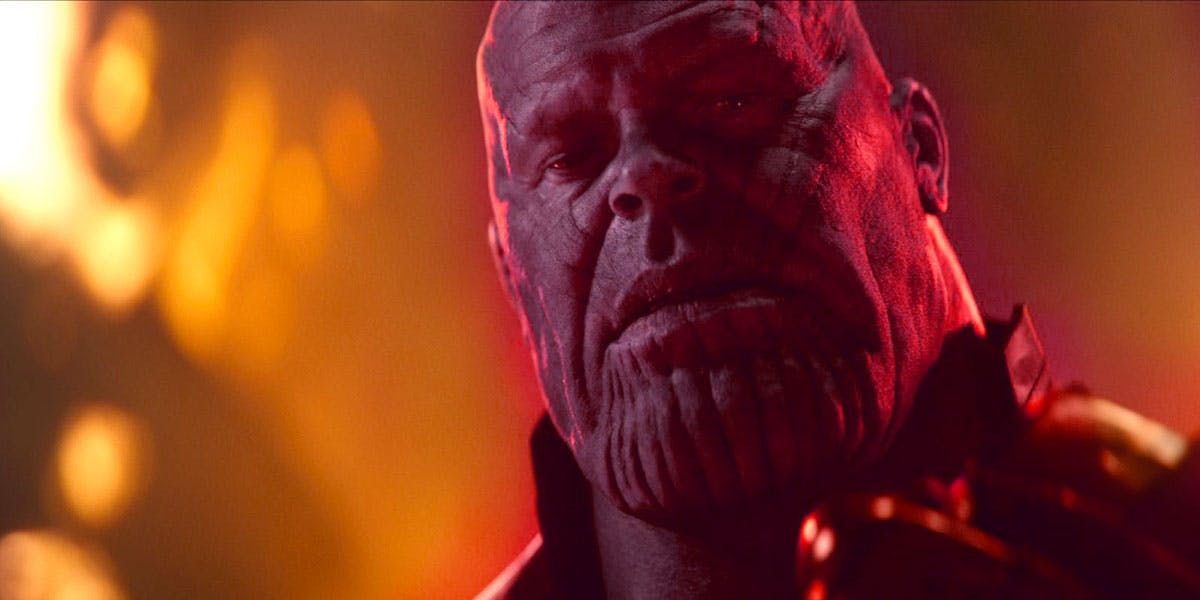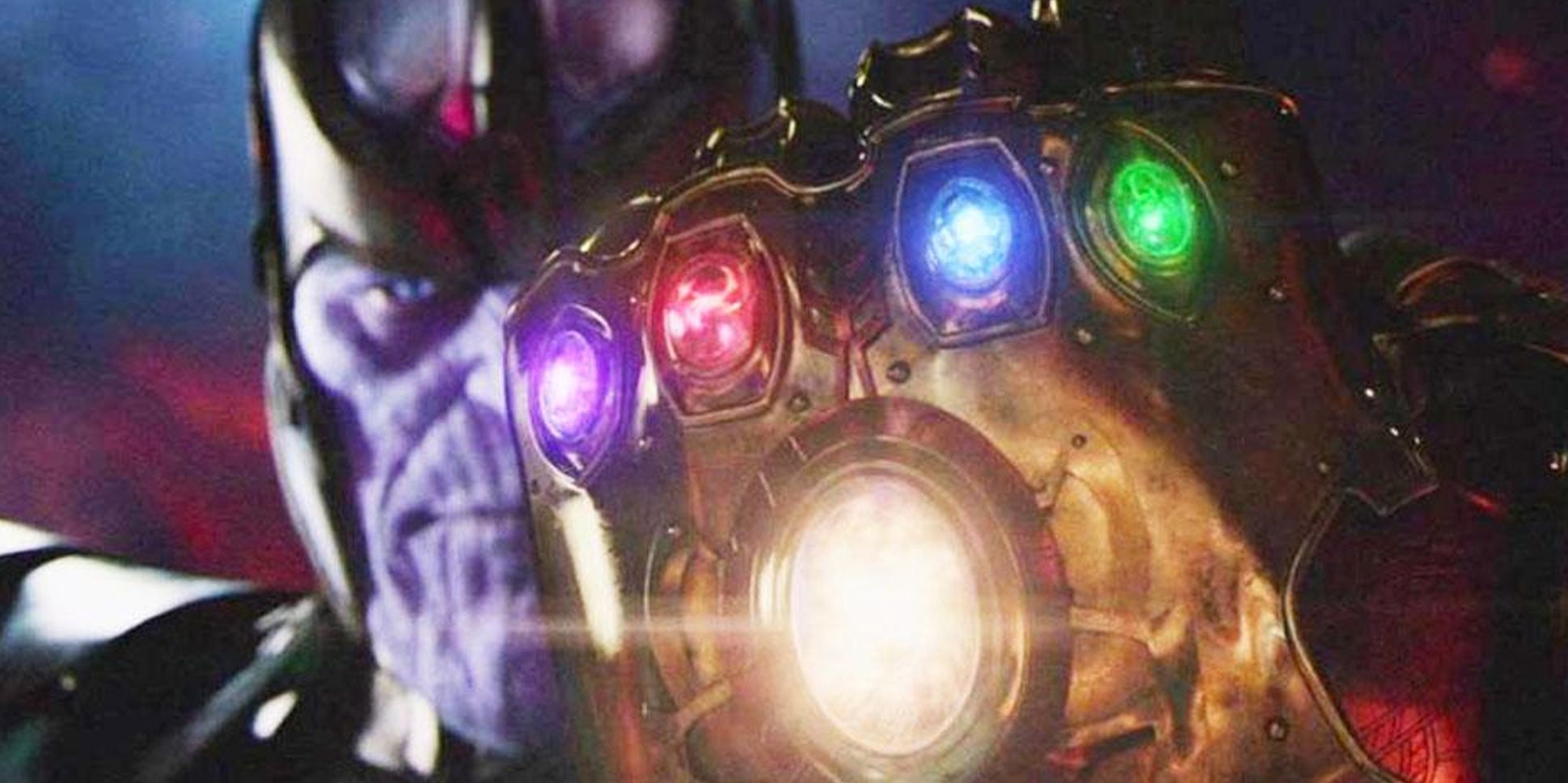WARNING: The following article contains major spoilers for Avengers: Endgame, in theaters now.
It's seemingly inevitable that whenever a superhero film presents a particularly memorable villain, some percentage of the audience will decide the bad guy was in the right. Sometimes, this is understandable; villains like Magneto and Killmonger are presented as having valid beliefs and goals, after all, with their methods for achieving said goals pushing them into villainy. It makes sense people might come out of Black Panther thinking "Killmonger was right" when the movie ends with the heroes acknowledging that he was right about many things... except for the conquering and mass murder, of course.
After the release of Avengers: Infinity War, many viewers put Thanos in this category of a villain who had a legitimate moral point. After seeing Endgame, one would hope most of the people who declared "Thanos was right" will come to realize that not only was Thanos wrong, but that he's always been an idiot.
So, what made people sympathize with the Mad Titan in the first place? Infinity War does lay out a backstory which explains why Thanos would develop his beliefs. His homeplanet Titan suffered from a combination of resource scarcity and overpopulation, which led him to conclude the whole population of the universe needed to be cut in half in order to survive.
On Earth, there is controversy among scientists on the subject of population growth. While the planet does have a carrying capacity for how many human lives it can sustain, the exact number of that capacity is unclear. What is clear is that despite a 7.5 billion population, we're not living in a scarcity economy.
Poverty has actually gone down as the planet's population has risen, and poverty's continued existence is not a problem of lacking resources but rather of vast inequality in how those resources are distributed. In regards to evironmental threats, the greatest problems only come from a minority of the population; a 2015 Oxfam study found the world's richest 10% produces half of the world's carbon pollution, while the poorest half of the population only creates 10% of said pollution.
While Thanos' plan would not cure Earth of its ills, his goals were admittedly larger than just our planet. Let's imagine for a second, then, that more planets in the MCU are in fact like Titan, and overpopulation is a major threat. Does Thanos' plan to cull half the universe make sense as a solution then? Well... no -- and not only because he could just as easily use the Infinity Gauntlet to double resources to support the population.
But even if we focus in on his chosen solution, it doesn't work as a way to reduce scarcity because he's culling half of reality's resources as well, because in the grand scheme of life, resources are the population. The Decimation didn't just kill off intelligent or humanoid lifeforms. Marvel Studios President Kevin Feige has confirmed it killed of half of all animal and plant life, meaning all the survivors have proportionally just as little to eat as they had before, and with half as many plants, atmospheric polution would actually get worse. Thanos didn't balance ecosystems, he merely shrunk them while making them even more imbalanced.
All that said, it is possible to attribute all the illogical aspects of Thanos' plan as presented in Infinity War to obsessive tunnel vision rather than sheer stupidity. In Endgame, however, it becomes clear that Thanos' plan is even more poorly thought out than we ever imagined.
When Thanos time travels from 2014 into his Decimated future, he somehow finds himself surprised by the most obvious possible aspect of his plan: People are upset about other people dying. Even the most social maladapted person with half a brain could have expected that outcome. Yet, somehow, this takes Thanos by surprise, and so he turns to his Plan B: Destroying the entire universe to create a new one.
At this point, anyone who possibly thought Thanos was ever right in any way should realize that he's actually kind of dumb. If he weren't so dangerous, he'd be laughable, and even as dangerous as he is, it does feel like a minor missed opportunity not to have Tony or Rocket or someone just flat out laugh at his ridiculous failure to understand the most basic consequences of his actions. Yes, Thanos is a great villain, but not only is he not sympathetic, he's not even smart.
Directed by Joe and Anthony Russo, Avengers: Endgame stars Robert Downey Jr. as Iron Man, Chris Evans as Captain America, Mark Ruffalo as Bruce Banner, Chris Hemsworth as Thor, Scarlett Johansson as Black Widow, Jeremy Renner as Hawkeye, Brie Larson as Captain Marvel, Paul Rudd as Ant-Man, Don Cheadle as War Machine, Karen Gillan as Nebula, Danai Gurira as Okoye and Bradley Cooper as Rocket, with Gwyneth Paltrow Pepper Potts, Jon Favreau as Happy Hogan, Benedict Wong as Wong, Tessa Thompson as Valkyrie and Josh Brolin as Thanos.


